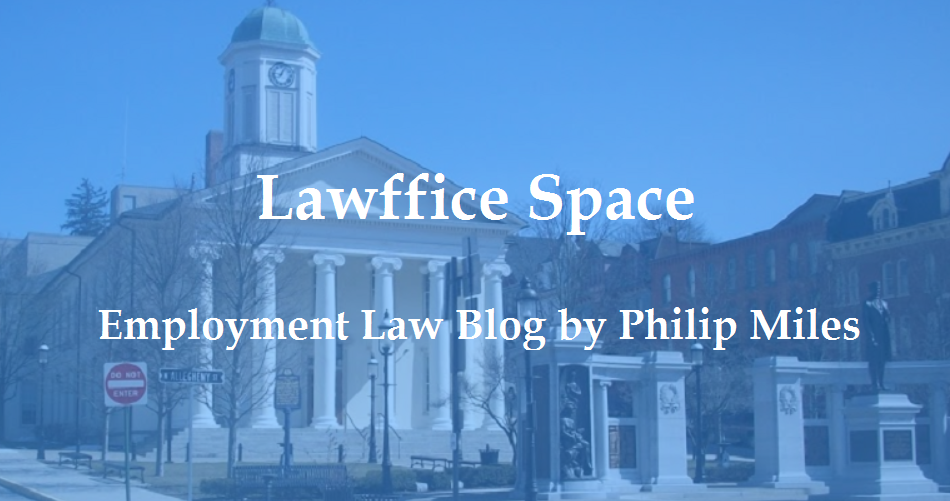The employee in question used her cell phone, while on duty, to "post comments on her Facebook page about a coworker who had accidentally soiled her pants at work." She was later fired and then filed for UC. Mr. Meyer provides some takeaways in his blog post: develop a social media policy, promulgate it, enforce it. He's right, and I just want to touch on how workplace policies on any subject can help employers in UC cases.
In UC cases involving a workplace policy, the Court applies this analysis:
[A] violation of an employer’s work rules and policies may constitute willful misconduct. An employer must establish the existence of the work rule and its violation by the employee. If the employer proves the existence of the rule, the reasonableness of the rule, and the fact of its violation, the burden of proof shifts to the employee to prove that she had good cause for her actions.In short, employers just need to show that an employee broke an established (and reasonable) rule and then the burden is on the employee to explain why. That's a low bar to clear.
Otherwise, the employer has the burden of establishing the employee's:
wanton and wilful disregard of the employer's interest . . . the disregard of standards of behavior which an employer can rightfully expect from his employee, or negligence which manifests culpability, wrongful intent, evil design . . . or intentional and substantial disregard for the employer's interests or the employee's duties and obligations.Geisinger Health Plan v. UCBR, 964 A.2d 970, 973-74 (Pa. Commw. Ct. 2009). This often involves gray areas in which subjective calls must be made by the referee, UCBR, or Court. Why wade into these murky waters when you can just throw your rule on the table and then establish the employee's violation of it?
Posted by Philip Miles, an attorney with McQuaide Blasko in State College, Pennsylvania in the firm's civil litigation and labor and employment law practice groups.

No comments:
Post a Comment